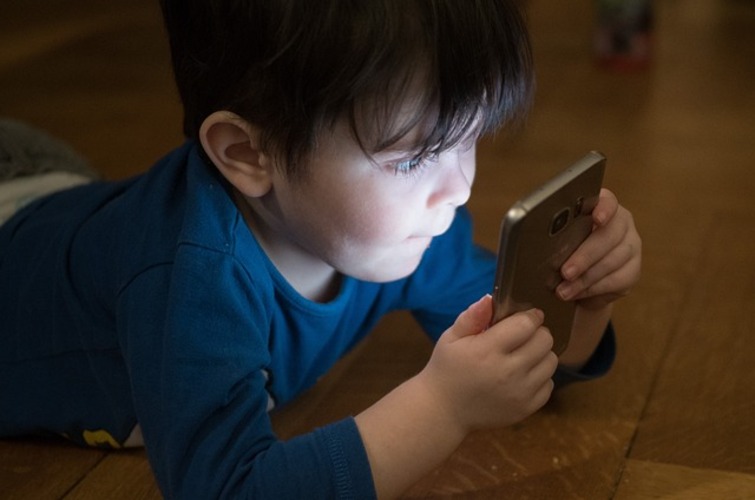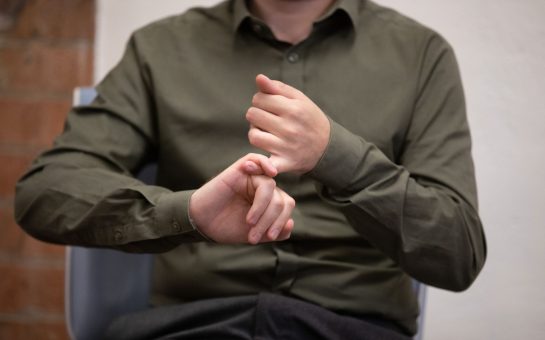A data-driven report published in October 2023 by the UK charity Women’s Aid found a direct link between watching misogynist content creators online and the normalisation of unhealthy behaviour in young people’s relationships.
The report found that young people who have viewed content from influencers such as Andrew Tate, a self-proclaimed “misogynist,” are five times more likely to view hurting someone physically as acceptable if you say sorry afterwards.
Tate, a British-American social media influencer, rose to fame after he was removed from the UK TV show Big Brother in 2016 following the release of footage that appeared to show him attacking a woman.
He was arrested in December 2022 on suspicion of human trafficking, rape and forming an organised crime group, according to prosecutors.
Previous to his arrest, Tate had been banned from Facebook, Instagram and YouTube for breaching various platform rules.
Catherine Dean, Senior Research and Policy Officer at Women’s Aid, said in a webinar on the report on 2 November 2023: “[In the report,] we wanted to look a bit more closely at what influences [relationship attitudes amongst young people], particularly those that promote violence against women and girls, domestic abuse and unhealthy relationships.”
“The research found that those who had been exposed to those misogynistic views on social media, such as from Andrew Tate, had significantly more harmful perceptions of relationships and a greater tolerance of doing harm.”
The report found that nearly a third of young people who were exposed (meaning, they had viewed or interacted with) misogynistic social media content believed there should always be one more dominant person in a relationship, compared with 14% who had not seen this content.
A sample group of 1,000 children was used for the study. The children spanned from Key Stage 2 (KS2) to Key Stage 5 (KS5) and therefore ranged from 7 to 18 years of age, with 250 participants from each key stage.
A representative for Solace, a London-based domestic abuse charity said: “[The Women’s Aid] report echoes what our Children and Young People’s services are finding when working with young people in London. The insidious impact of misogynistic content on social media should not be underestimated.”
“Education on coercive and controlling behaviours at an early age could prevent many toxic and abusive behaviours, such as love bombing or [controlling when] your partner sees friends and family.”
Almost a fifth of those exposed to misogynistic content thought that hurting someone physically is okay if you say sorry after hurting them, compared with just 4% of those who have not been exposed.
Additionally, those exposed to such content were much less likely to disagree with the idea that it’s romantic for the person you’re dating to constantly shower you with gifts and randomly turn up everywhere you go, compared to those not exposed.
The report found that by KS3, age 11-14, nine in 10 children own a smartphone and that over half of KS5 children, age 16-18, had seen Andrew Tate’s content.
Dean echoed that education is key to countering these harmful beliefs. She said: “[These beliefs] aren’t isolated amongst children and young people, but that’s where these views form.”
“[Conversations can help us] understand how healthy friendships and intimate relationships are an essential part of our mental health, well-being and our existence for all of us, men and women, whatever age group.”
702,604 instances of domestic abuse-related violence were recorded in the year ending March 2023, a 15% rise compared with the year ending March 2020, according to the Office of National Statistics, which flags a significant increase in offences.
Penelope Frost, Chair for Richmond’s Education and Children’s Services Committee said: “The Relationships and Sex Education curriculum at both primary and secondary level includes regular discussions with their students on how they should keep themselves safe when using social media, including specific challenges regarding violence against women and girls and the effect of influencers such as Andrew Tate.”
“We believe that the way to manage children’s responses to harmful social media posts is to help them develop their own ability to challenge such material.”
Women’s Aid offers in-school training, Expect Respect, which aims to help young people identify harmful gender stereotypes, where they come from and their impacts as a foundation to understand why abuse happens.





